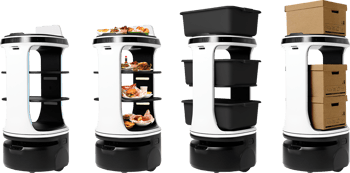After a long climb back from the pandemic, restaurant staffing numbers have begun to normalize. Fewer restaurants are struggling with staffing shortages. One reason for this, says a recent report from the National Restaurant Association, is the fact that restaurants are getting better at retaining current employees. In 2023, the restaurant business saw an average monthly “quit rate” of 4.8%, which was down a full point from 5.8% in 2022.
One reason for this is that employers are working harder to create employee-friendly HR policies. A growing number of restaurant owners recognize that in order to remain competitive, they must offer a competitive working experience. HR policies for restaurants play a major role in shaping this experience. But there’s a lot to consider when setting up HR policies, from sick days and conduct issues to tip reporting and paid family leave.
As you are setting up HR policies for your restaurant, take full stock of both the issues that you must address and the additional steps you can take to create a uniquely positive workplace.
5 Essential HR Policies For Restaurants
When setting up HR policies for your restaurant, you must bear in mind that there are certain features that are entirely essential. HR policies for restaurants play a central role in protecting employee rights, maintaining codes of conduct, and ensuring compliance with labor laws.
To take a closer look at proven strategies for building successful HR policies for restaurants, we spoke to Kelly Peters, the head of HR at Indigo Road Hospitality Group.
Peters advises that your first step should be to develop a comprehensive and legally reviewed company manual. Spell out all workplace policies, outline your expectations, and give your staff a framework to follow. This manual should be a useful point of reference for both management and staff.
Peters suggests using the following checklist, which identifies several components that should be included in HR policies for restaurants of every size and shape:
1. Establish a strong code of conduct
Your employee manual should outline your company’s core values, clearly communicate expectations of staff, and outline the consequences for failing to adhere to these expectations. Address areas such as dress code, cell phone usage, interactions with customers, interactions with other staff members, and even behavior on social media channels.
A clear and thorough code of conduct is critical when setting up HR policies, not just as a way to preempt disciplinary concerns, but as a way to create a safe, healthy, and inclusive working environment for all staff members.
2. Streamline employee complaint management
Recent high-profile harassment scandals in the restaurant industry contain a lesson: You need policies in place for staffers to report concerns and complaints. Peters notes that your HR department should maintain an “open-door policy” for fielding complaints.
If you don’t have the personnel to field complaints in real time, be sure to outline clear steps and a chain of command for reporting concerns. Moreover, take steps to ensure that your management team understands how to handle complaint procedures while remaining in compliance with the law.
3. Identify your “zero-tolerance” policies
Be crystal clear on the types of behaviors that will result in immediate termination such as harassment, sexism, racism, or safety violations. Kelly Peters notes, for instance, that Indigo Roads has a strict zero-tolerance policy toward drinking on the job.
“That means before, during, and after,” Peters said. “And no shift drink.” The company instituted the policy in order to safeguard the company from lawsuits and worker's comp issues. Identify the behaviors that won’t be tolerated in your restaurant, and clearly state the consequences for engaging in these behaviors.
4. Articulate rules for sick days, lateness, and absentees
Your employees should be given a clear set of rules detailing how various attendance issues will be handled. Among them, HR policies for restaurants should outline conditions for calling out sick, including the allotted number of sick days, required lead time for missing a shift, and sick pay policies.
Additionally, your HR policy should indicate the consequences for issues like lateness (both occasional and chronic) and for unplanned absences. If repeated lateness or even just one no-show is likely to result in termination, be sure to put it in writing here.
5. Specify tip reporting policies
Most front of house staff members rely on their tips to make ends meet. It’s important to make sure your employees understand how your restaurant facilitates tip sharing and reporting. Avoid errors, accounting snafus, or lawsuits by using your manual to explain exactly how tips should be handled.
5 HR Policies for Restaurants That Can Improve Retention
HR policies for restaurants should also include programs designed to support employee needs and incentivize loyalty. Peters outlined the following five HR policies and programs, noting that Indigo Road has used these strategies successfully to attract and retain employees.
1. Providing sobriety support
Indigo Road founder Steve Palmer is a recovering addict and vocal proponent of sobriety. In 2017, Palmer founded the restaurant support group Ben’s Friends. Peters points out that “In the restaurant industry, if you have an employee who is struggling with sobriety, the tendency is to say, ‘You’re fired.’”
By contrast, when Indigo Road employees seek help with addiction, the company will match them with the appropriate treatment options. This policy fosters a safe work space for staff members who may be recovering addicts, and provides the opportunity for restaurants to retain otherwise valuable personnel who may be struggling with addiction. Develop a clear and compassionate policy for helping your employees get sober and stay sober.
2. Offering paid family leave
Indigo Road is unique in that the company offers four weeks of PTO to salaried employees, two weeks of PTO to hourly wage-earners, and maternity/paternity leave to new parents. Not only that, but every time an employee has a baby, Indigo Road gifts the family a mini chef’s coat with their last name embroidered on it.
This small but sweet gesture tells employees that their lives away from work are valued. Indigo Road also gives employees one health day a year for an annual physical or check-up, as well as two free days every year to volunteer with a nonprofit. When setting up HR policies, consider the scope and structure of your PTO, paid family leave, and personal day policies.
3. Instituting a home loan program
Indigo Road’s HR policy also includes a program aimed at helping employees advance toward home ownership. Among the more generous HR policies for restaurants, Indigo offers 50/50 interest-free matching loans to employees who can show they have the financial wherewithal to pay back their loan within three years.
Peters notes that the cost is usually modest, with most employees seeking between $5,000 and $10,000 to help with a down payment. Providing this type of assistance to your employees can enhance a sense of goodwill, company loyalty, and job stability.
4. Giving financial performance incentives
When setting up HR policies for your restaurant, consider a few cost-effective ways to financially incentivize your employees. For instance, four times a year, Indigo Road names a regional employee of the quarter, which comes with the honorary title and a $500 gift card.
Twice a year, the company rewards standout managers with $1,000 stipends. Financial incentives like these can go a long way toward encouraging positive employee performance and enhancing morale.
5. Creating team-building experiences
Every summer, Indigo Road gathers its braintrust — management, leadership, and chefs— for a fun, educational company retreat. Team members will gather for daily programming at dynamic destinations. For instance, the company recently gathered in Asheville, North Carolina, where attendees divided their times between educational programs and bonding activities.
“One day will be for meetings,” Peters said, “and the next we’ll go white water rafting or on a ropes course or have a spa day.”
The objective is to use your HR policies to create a sense of connection, collaboration, and friendship among staff members. Give your employees a chance to see themselves as a part of a team. The result will be a lasting commitment to the restaurant and to one another.
Not sure how to begin setting up HR policies that make sense for your restaurant? Check out some of the leading vendors in the space for insight and support!
[Photo by Rendy Novantino on Unsplash]





